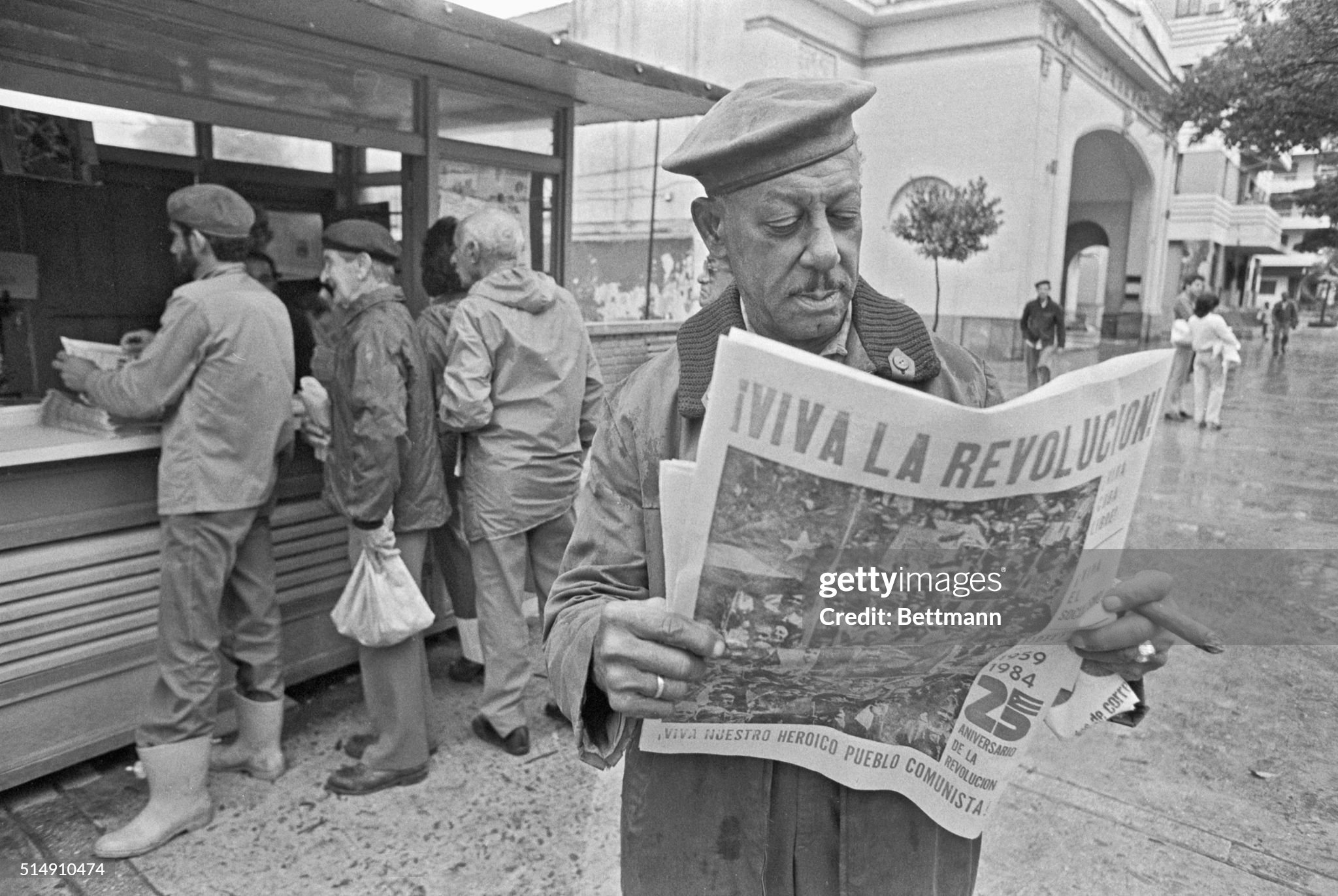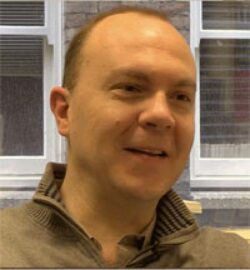“Esto”: The Shape of Revolution in Cuba

Event: Research Group
Location: NEC conference hall
27 October 2023, 17.00-19.00 (Bucharest time)
Martin HOLBRAAD, Professor of Social Anthropology, University College London
Foto: (Original Caption) 12/31/1983-Havana, Cuba-Havana residents line up to buy the latest copy of Granma, the communist party newspaper, as 74-year-old Teobaldo Hernandez reads about this weekend’s events, which will celebrate the 25th anniversary of Fidel Castro’s revolutionary triumph. The entire country has a three-day weekend, which will culminate on New Year’s Day when Castro addresses the nation.
Abstract:
Revolutions are cosmogonic. More than any other modern political form, their deliberate goal is to precipitate change as a total, all-embracing project: not just a radically new political order, but one that reaches deep into the fabric of social relationships, seeking to transform people at their very core, recasting the horizons that give their lives shape and meaning. If revolutions strive to become all-encompassing, however, then studying them must become a similarly ‘total’ endeavour. Revolutions are compelling as objects of study in that they forge relations across different scales and domains, deliberately connecting the cosmic horizons of revolution as a planetary project inaugurating a New Time, for example, to the intimate asceticism in which the so-called New Man is forged, and everything in between: ideology and neighbourhood, planned economy and sex, mass mobilization and paranoid gossip. Only by tracing and accounting for these seemingly incongruous, often fragile and characteristically tense relational configurations can the shape of revolution as a totalizing project emerge in its distinctive contours. In this presentation I shall be presenting my attempts to do this for the Cuban revolution in my new book, by discussing a series of diagrammes that chart out these relational shapes in different areas of Cuban life and at different times in the development of the revolutionary process. The talk is accompanied by a pre-circulated chapter from the book, which reinterprets material collected in the late 1960s by Oscar Lewis and his team in Havana, focusing in particular on people’s accounts of their degrees and manners of involvement in the neighbourhood level mass organization of the Committees for the Defence of the Revolution (CDR).
Short bio:
 Martin Holbraad’s main field research is in Cuba, where he focuses on Afro-Cuban religions and revolutionary politics. These ethnographic interests inform his theoretical concerns with such topics as the anthropology of truth and the imagination, abstraction and divinity, and the relationship between anthropological conceptualization and art. He is co-author of Anthropologies of Revolution: Forging Time, People and Worlds (California, 2020), author of Truth in Motion: The Recursive Anthropology of Cuban Divination (Chicago, 2012), which is an attempt to experiment with the conceptualization of truth in divination and in anthropology, and co-author of The Ontological Turn: An Anthropological Exposition (Cambridge, 2016), which seeks to elucidate the recent emergence of the so-called ‘ontological turn’ as a distinctive anthropological orientation, articulating its core tenets and methodological implications, and exploring its influence in contemporary anthropological research.
Martin Holbraad’s main field research is in Cuba, where he focuses on Afro-Cuban religions and revolutionary politics. These ethnographic interests inform his theoretical concerns with such topics as the anthropology of truth and the imagination, abstraction and divinity, and the relationship between anthropological conceptualization and art. He is co-author of Anthropologies of Revolution: Forging Time, People and Worlds (California, 2020), author of Truth in Motion: The Recursive Anthropology of Cuban Divination (Chicago, 2012), which is an attempt to experiment with the conceptualization of truth in divination and in anthropology, and co-author of The Ontological Turn: An Anthropological Exposition (Cambridge, 2016), which seeks to elucidate the recent emergence of the so-called ‘ontological turn’ as a distinctive anthropological orientation, articulating its core tenets and methodological implications, and exploring its influence in contemporary anthropological research.
*
*
This event is organized within The Group for Anthropological Research and Debates (GARD) hosted by New Europe College.